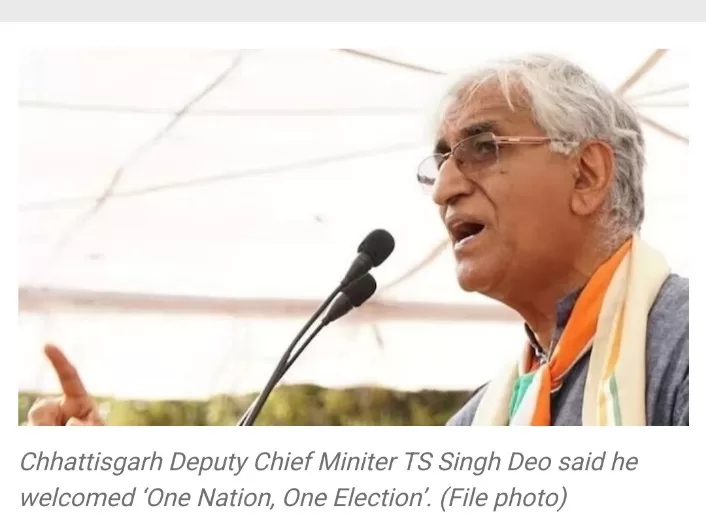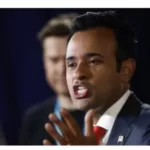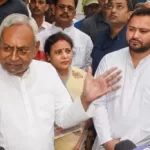In a surprising turn of events, Chhattisgarh’s Deputy Chief Minister and prominent Congress figure, TS Singh Deo, has expressed his endorsement of the ‘One Nation, One Election’ concept, a stance that contrasts with the traditional party stance. Deo, however, underscored that this idea is not novel but rather an age-old proposition.
The ‘One Nation, One Election’ initiative, championed by Prime Minister Narendra Modi, envisions the simultaneous conduct of Lok Sabha and state elections. Recent developments have brought this concept to the forefront, with reports suggesting that the government might introduce a bill regarding it during a special parliamentary session scheduled from September 18 to 22, the agenda of which remains undisclosed.
The formation of a committee, helmed by former President Ram Nath Kovind, to explore the feasibility of ‘One Nation, One Election,’ has further fueled speculation about the potential dissolution of the current Parliament and the early announcement of Lok Sabha polls.
With assembly elections slated for five states in the coming months and Lok Sabha elections set for May and June the following year, the political landscape is undergoing rapid shifts. Some, like Sanjay Raut of Shiv Sena, suspect that the government’s move is an attempt to delay impending elections, citing it as a conspiracy.
Former Union minister and Trinamool Congress leader Yashwant Sinha has posed an intriguing question, asking whether the government’s intent is to transition from the present parliamentary system to a presidential one to achieve ‘One Nation, One Election.’
The notion of ‘One Nation, One Election’ entails synchronized elections across the nation, signaling a significant departure from the current practice of separate elections for state assemblies and the Lok Sabha.
As the political discourse deepens, TS Singh Deo’s surprising stance adds an unexpected twist to the ongoing debate surrounding electoral reforms in India.







